BBC Bristol celebrates 90 years of broadcasting
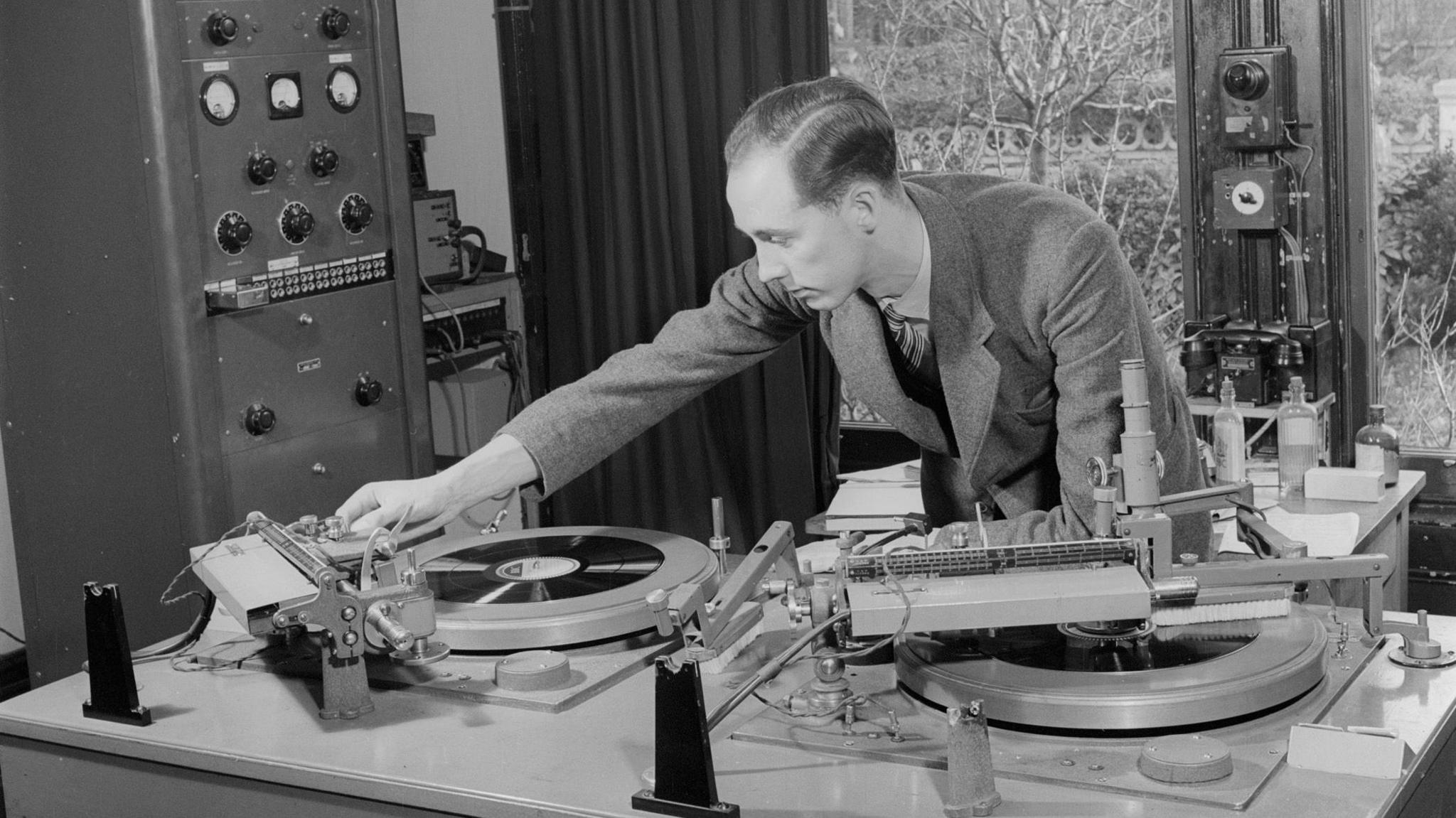
The broadcasting base in Clifton saw the birth of BBC Radio Bristol and Points West
- Published
It is officially 90 years since the BBC opened the Bristol office to provide broadcasting to the west of England.
Two years after Broadcasting House in London opened as the first purpose-built broadcast centre in the UK, the BBC Bristol studios went live in 1934.
By 1940, six studios had been established at Broadcasting House on Whiteladies Road as the BBC eventually acquired the surrounding houses.
Since then, the site has produced thousands of world-famous broadcast programmes and served as the home of the Natural History Unit for many years.
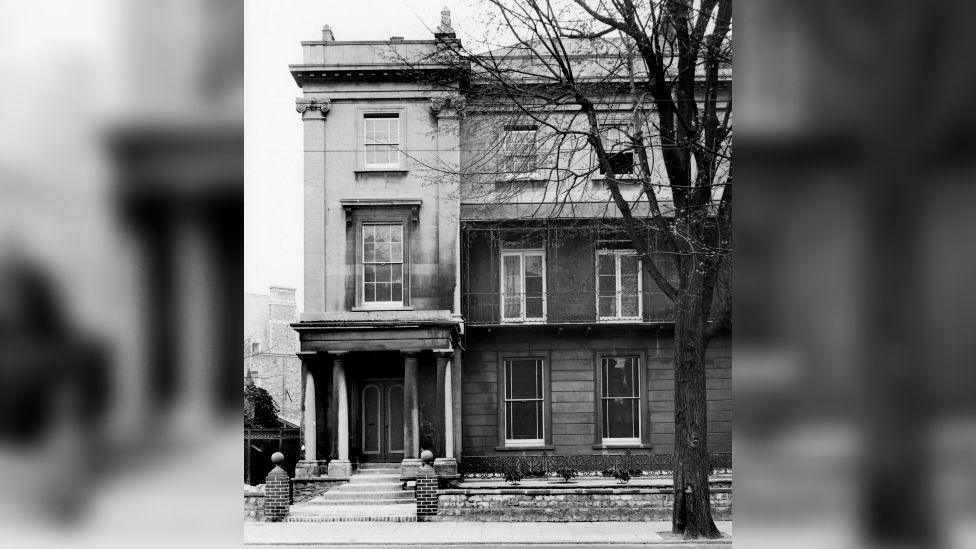
The broadcasting base in Clifton opened on 18 September 1934
The Lord Mayor of Bristol officially opened the Whiteladies Road studios and offices on the 18 September 1934.
The centre, which included an important large space to hold an entire orchestra, was one of the most modern radio centres of its day.
Each studio was designed for a different acoustic purpose, including orchestral, drama, sound effects and "talking".
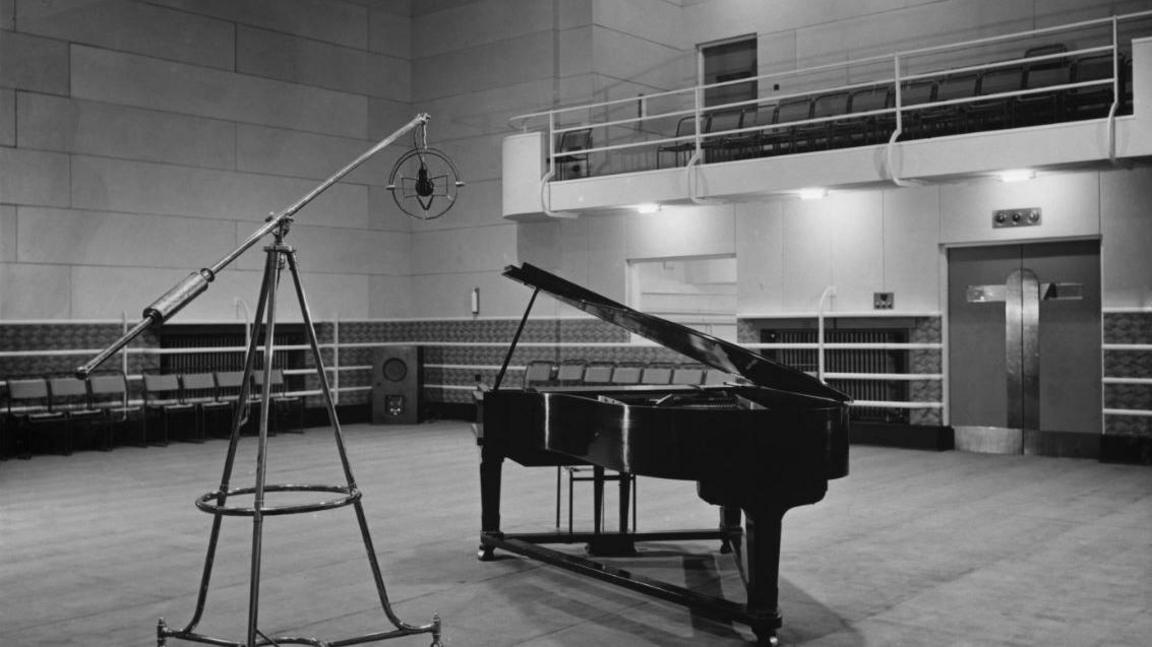
This recording room is where the Points West studio stands today
Bristol's role in broadcasting was transformed during World War II, when the corporation moved its major entertainment departments out of London.
The London blitz started on 7 September 1940, and weeks later Broadcasting House took its first hit.
But the BBC had a contingency plan for such an event.
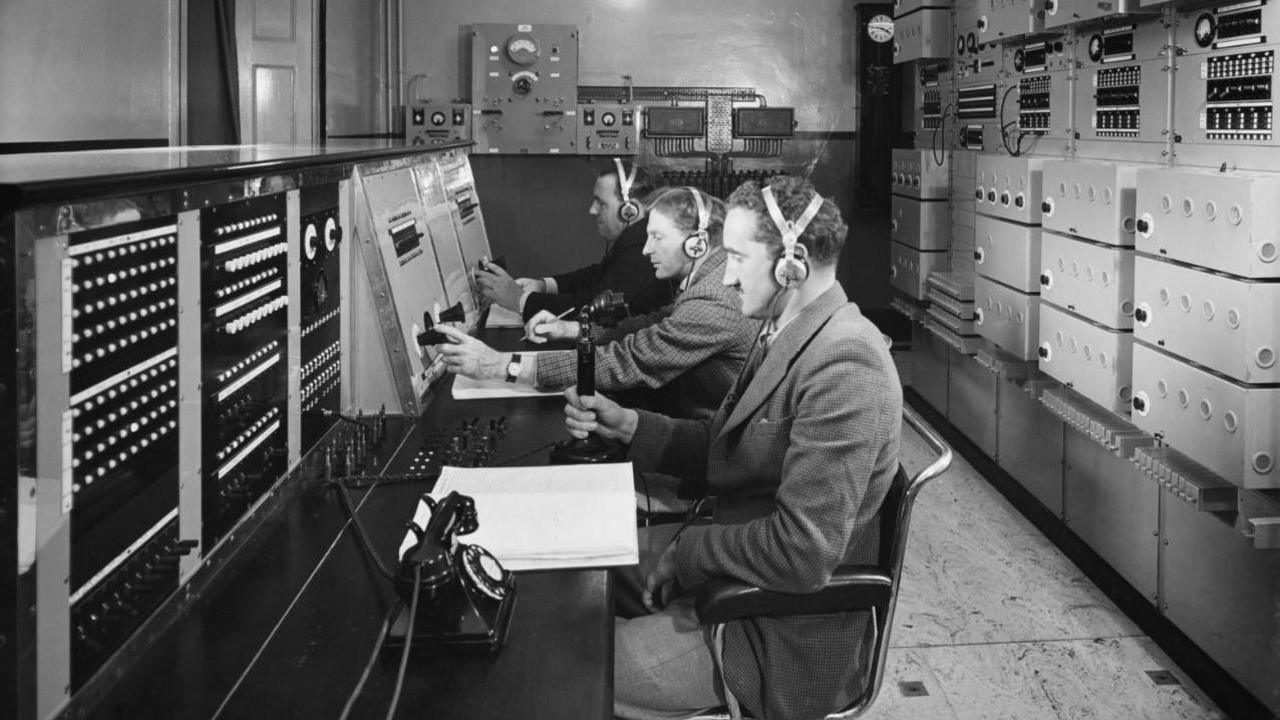
The control room ensured that all signals were properly routed and all technical standards were met to maintain broadcast quality
London was able to quickly switch to broadcasting in Bristol - sometimes in the middle of a news bulletin - when the capital was under attack.
It is thought the German Air Force used BBC transmitters to guide bombers to their targets, so engineers switched transmitters to put them off course.
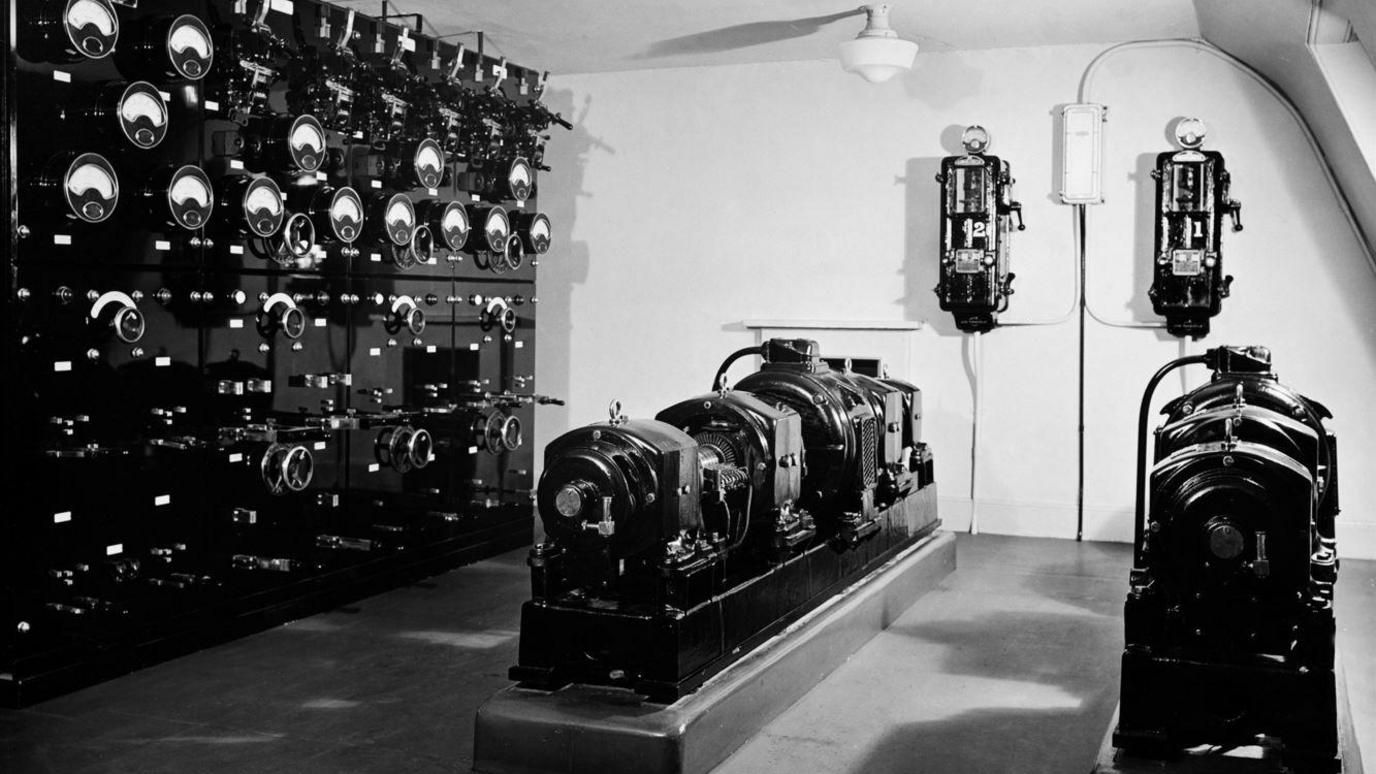
Switchboard and motor-generators were used for charging control room batteries
Despite these thorough preparations, Bristol eventually came within bombing range of the Luftwaffe.
The BBC set up camp underground, in the disused tunnels of the former Clifton Rocks Railway, as a secret broadcasting base that would be safe from bombings.
A transmitter, studio and control room, and an 'ozoneator' to combat the smell of the river, were all concealed in the railway tunnel.
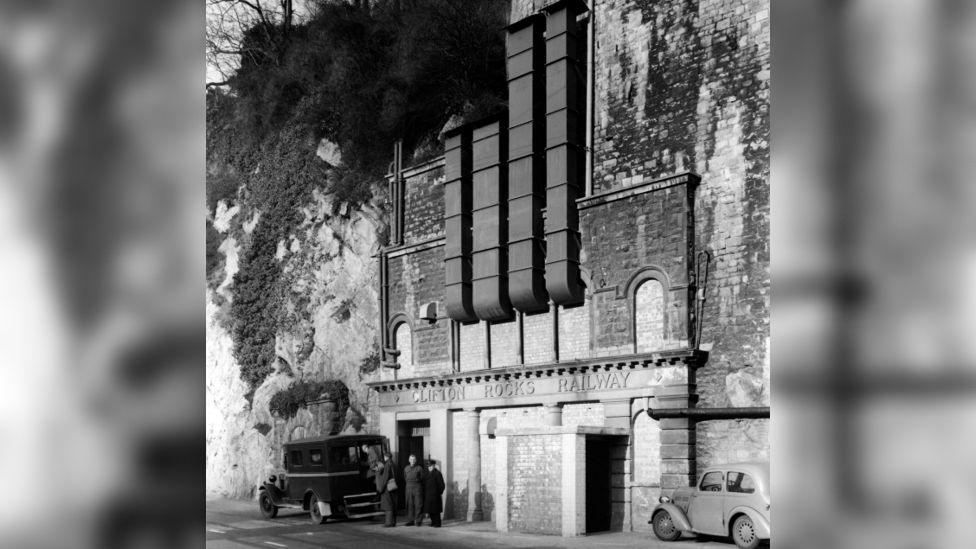
The former railway, which closed in 1934, became a secret transmission base
After the war, the Bristol office developed some pioneering radio programmes, like Any Questions, which was first broadcast on the West of England Home Service in 1948.
In 1945, Desmond Hawkins joined the BBC and began producing a long-running series called The Naturalist.
He went on to found the Natural History Unit (NHU), whose highly-acclaimed Life on Earth series was aired on BBC Two in 1979.
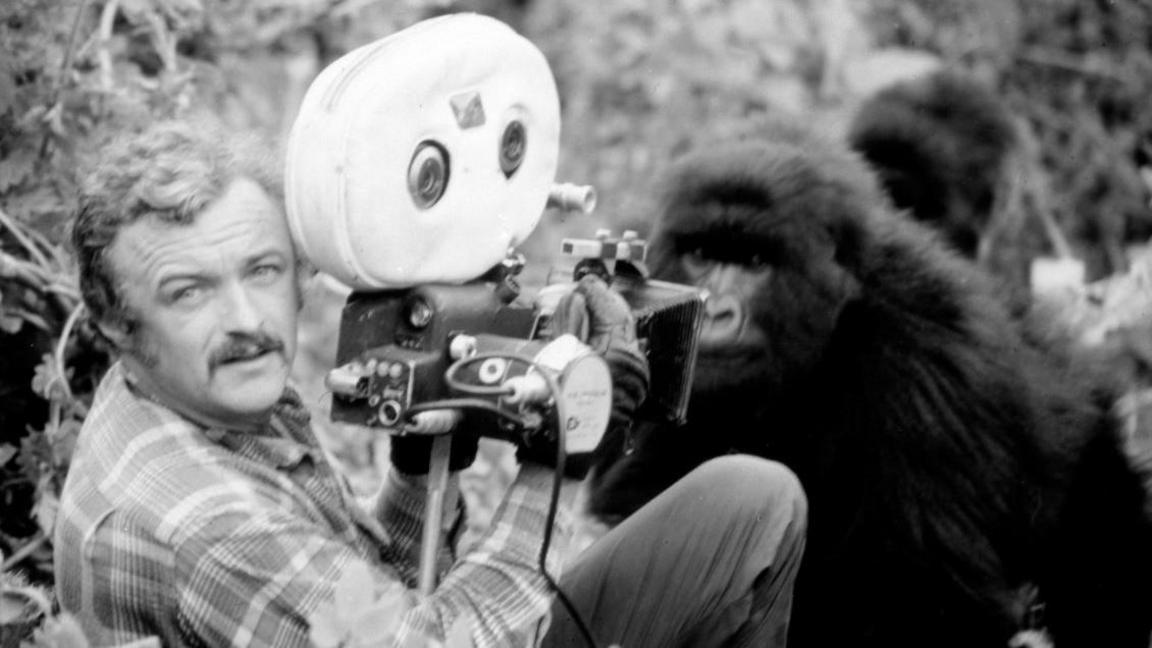
It took the Natural History Unit three years to film and edit the series
The regional news programme Points West, as seen on screens today, began as a five-minute television news show in September 1957.
Fast forward to 1970 and BBC Radio Bristol was born, with the first broadcast airing on 4 September.
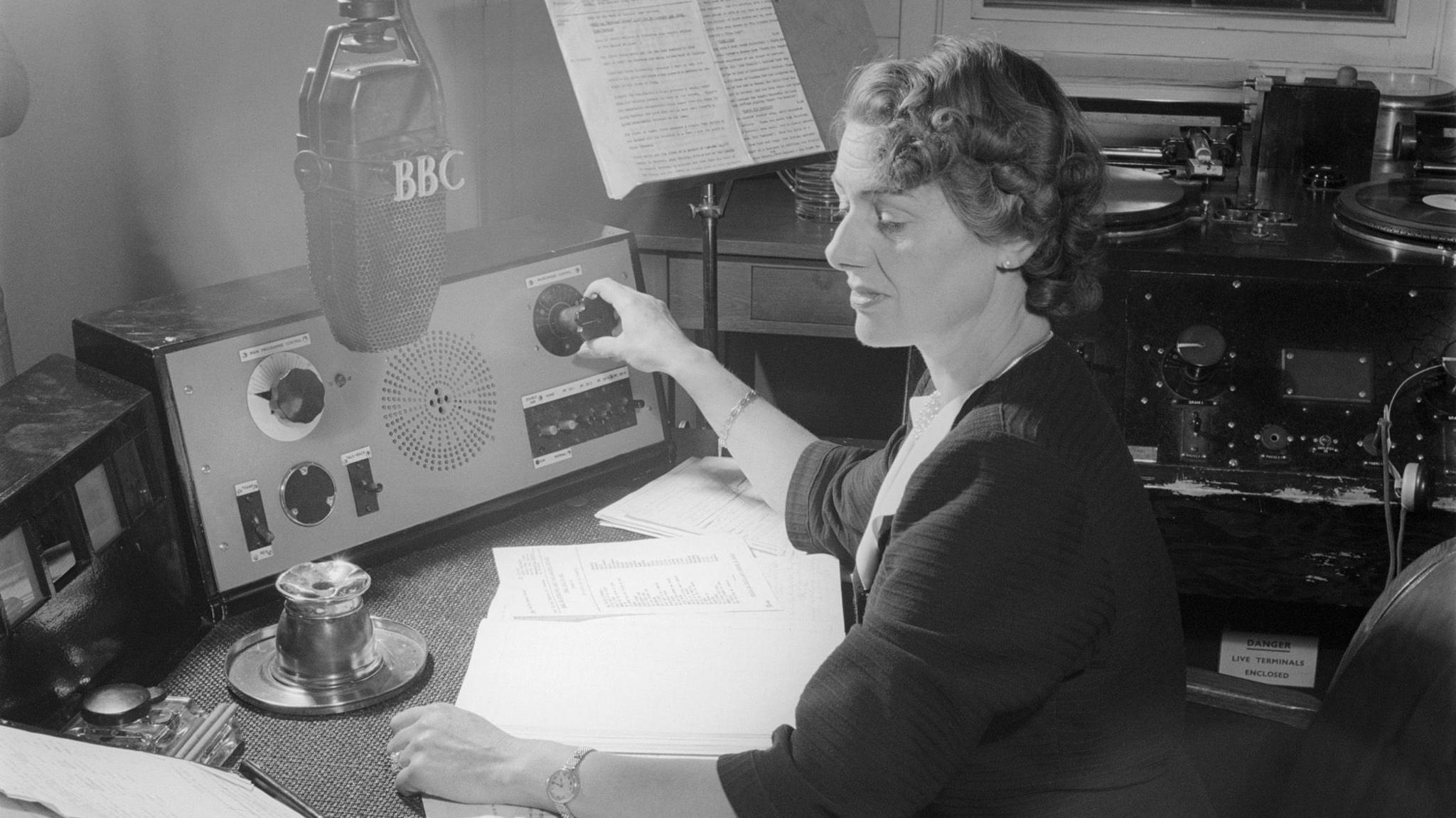
Post-production took place at the BBC offices in Bristol
And in another pioneering moment, 30 years after Radio Bristol first took to the airwaves, local news on the BBC website was started in Bristol in 2000.
The city was one of three trial areas - alongside London and Manchester - for online local news to be written in local newsrooms. The service is still going strong almost 25 years later.
Follow BBC Bristol on Facebook, external, X, external and Instagram, external. Send your story ideas to us on email or via WhatsApp on 0800 313 4630.